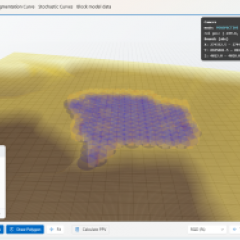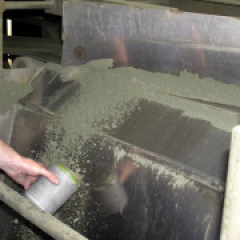
ver en Español
Many organisations consistently fail to reach their production targets or cost budgets and quite frequently both. Compounding this problem, they also struggle to break the cycle and make systematic and lasting improvements. Mine-to-Mill improvement projects have been conducted globally over many years and often provide value in the short term, but the ore and personnel involved inevitably change, making these technical projects difficult to sustain in the long term. Research and experience consistently demonstrate that the problems, which are often perceived to be of a technical nature, in fact, have more than one root cause.
Missed production targets or cost budgets are often symptoms of deeper problems within their organisations. These are usually caused by more than one issue, which may in fact be of an unexpected nature. The non-technical nature of these issues makes them harder to identify and therefore they can seem impossible to resolve. JKTech and FPC have found that such issues are unlikely to improve without some form of intervention involving leadership commitment.
Mining involves a series of operational stages usually managed independently of one another. Often, we find that the conditions required to optimise one stage can produce negative impacts on the performance in another stage in the operation. Reflecting on decades and hundreds of engagements and sites, the authors have found that missed production targets or cost budgets are usually the results of upstream, less technical causes. During the diagnostic process, it has often become apparent that internally-focused silo behaviours of upstream/downstream functions such as the mining and processing departments are their origin. For example;
- At several mines previously worked with, the mining engineers and metallurgists had never met each other, either due to the large size of the operation or just being heavily siloed. This can lead to the generic Mine-to-MillTM problem of mining engineers cutting costs by reducing explosives consumption, resulting in coarser fragmentation and lower mill throughput.
- The mining department had implemented a “fragmentation project” to ensure they produced a finer product for the mill.Unfortunately, the mill did not know the project was going on, and the mining department had no target fragmentation to work towards to.
- The metallurgical department implemented a Mine-to-MillTM project but did not have the engagement from the mining department. This resulted in a failed project with unrealistic recommendations.
These behaviours manifest themselves in the team members not actively collaborating to produce integrated plans and executing them together. Upon further investigation, drivers for such behaviours might be traced to siloed measurement and/or reward systems. Or a myriad of other contributing factors, which the authors have found to include:
- Ineffective or even chaotic processes
- Lack of clarity around accountabilities
- Unclear communication protocols
- Ineffective, disjointed or incompatible technologies
- Or many others
Problems in the Value Chain, such as drill and blast fragmentation, mine schedule compliance, comminution or separation issues may look purely technical. However, decades of experience have repeatedly demonstrated that the root causes usually include aspects engineers are often less comfortable with or likely to identify. These factors may involve:
- The way work is done (business processes)
- Organisational culture caused by issues such as leadership
- Personnel turnover
- Team member engagement
- Silos
- Alignment
Looking at these factors, it becomes clear to see why purely technically-focused Mine-to-MillTM improvement projects are so likely to fail or break the cycle of missed targets and budgets. Many operations have found, especially in recent times with COVID-19, these issues have compounded.
The missing piece - JKTech and FPC are pleased to announce the next generation of business performance review. The mining industry is used to either engaging a technical consultancy or one focused on management and behaviours, but by integrating both technical and management aspects into a single Business Diagnostic not only can specific insights of the location of hotspots in the Value Chain but also get to the root of the ‘Why’. Once this is understood, the solutions quickly become apparent and may be more straightforward to implement than initially thought.
Integrated Approach:
The diagnostic is conducted by integrating client site and/or group/corporate team members, JKTech and FPC to fully utilise all specialised skill sets. The discovery process includes a site audit, data review, simulated outcomes, site trials, refinements and implementation. Furthermore, the team will map and critique key processes, conduct interviews and observe behaviours, run surveys, and many other activities not usually found in a single business improvement program. It all culminates in a set of recommendations and ultimately a plan forward which includes all stakeholders.
What’s next?
Interested to hear more about what makes our process unique or how operations just like yours are achieving the seemingly impossible? Why not schedule a virtual meeting now to tell us about your frustrations and find out how you too can overcome the hurdles in front of you.



